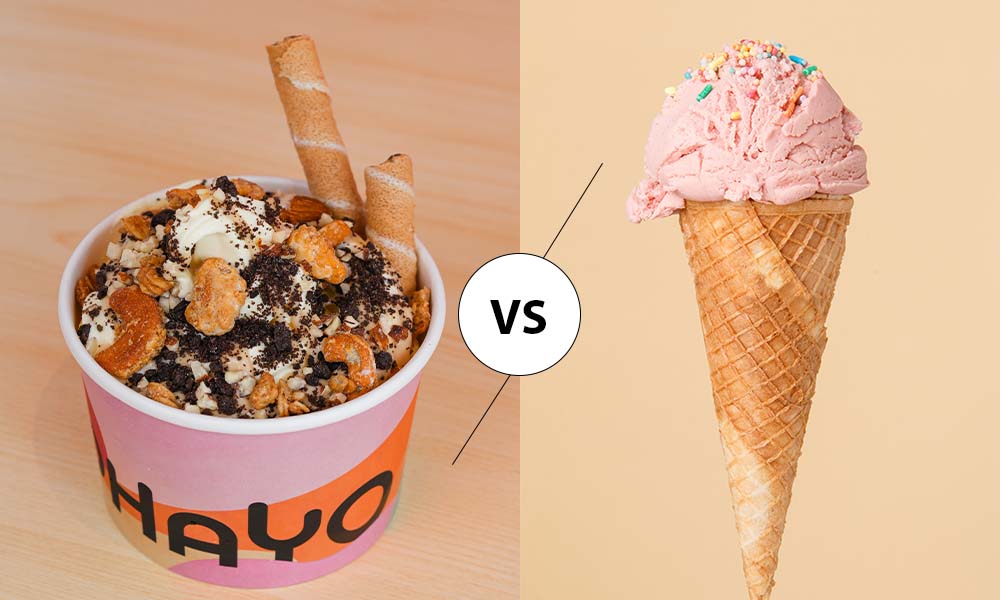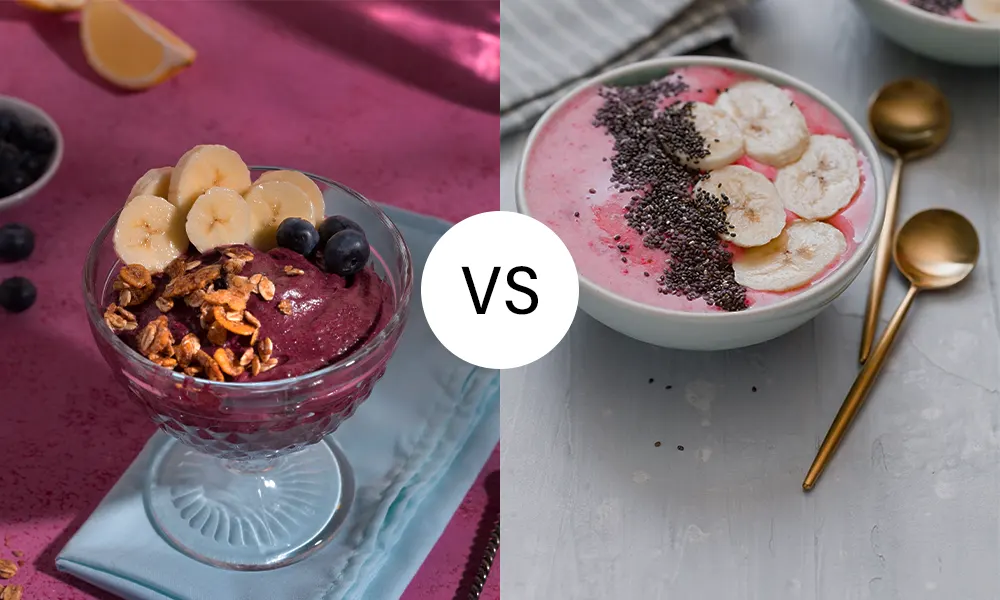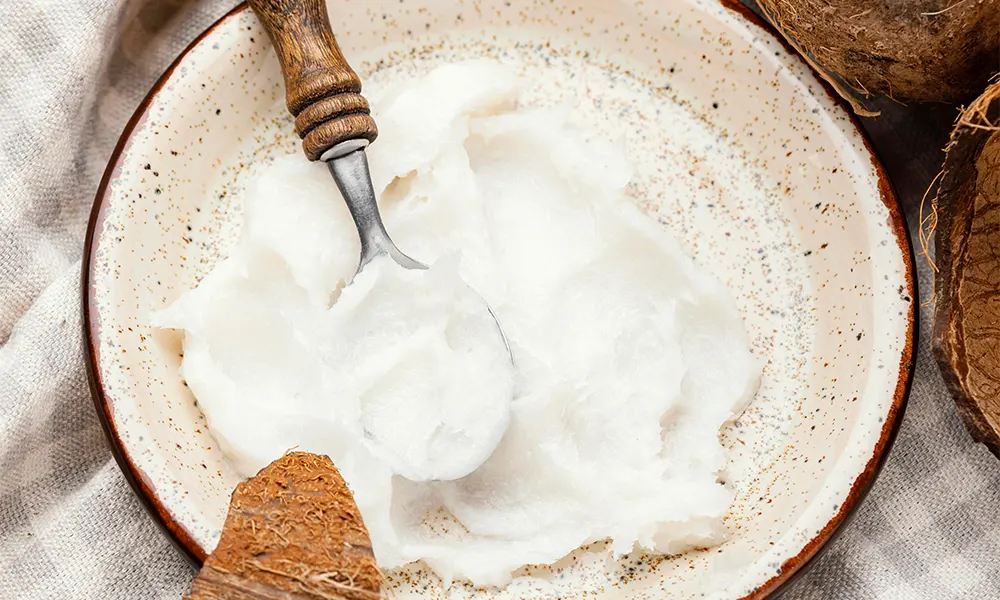The battle between frozen yoghurt and ice cream is one that many Aussies face when craving a cool, creamy treat. While both options are indulgent, it’s often tricky to decide which is the healthier choice. Frozen yoghurt has gained a reputation as the healthier alternative, but is it really the better option?
In this guide, we’ll break down the nutritional benefits and drawbacks of both, so you can make an informed decision the next time you’re eyeing the dessert counter.
Frozen yoghurt vs Ice Cream: A Nutritional Showdown
To settle the frozen yoghurt vs ice cream debate, we’ll take a deeper look at the key factors: sugar, fat, probiotics, and added ingredients. While there’s no simple winner, understanding the details can help you choose the better treat based on your dietary preferences.
Sugar Content: The Sweet Truth
It’s easy to assume that frozen yoghurt is always healthier due to its tangy flavour, but not all frozen yoghurts are created equal. Many varieties contain just as much, or sometimes more, sugar than ice cream. Always check the nutrition label to avoid a sneaky sugar overload. However, there are some ice cream brands that offer lower sugar options, especially those made with natural sweeteners. If sugar content is your main concern, the decision comes down to the specific product, rather than the category as a whole.
Fat Content: The Creamy Conundrum
Generally, frozen yoghurt contains less fat than traditional ice cream because it’s made with lower-fat or non-fat milk. However, fat isn’t the whole story. Ice cream often contains saturated fats, which can be a concern for heart health when consumed in excess. On the other hand, frozen yoghurt is a great alternative for those wanting to reduce fat intake, but make sure to check if excessive sugar or additives have been used to compensate for the lower fat content.
Probiotics: The Gut-Friendly Factor
One key advantage that frozen yoghurt has over ice cream is its probiotic content. Many frozen yoghurt brands contain live and active cultures, which contribute to gut health by introducing beneficial bacteria into your digestive system. While ice cream lacks these probiotics, it still provides a tasty treat just without the added digestive benefits.
Added Ingredients: A Closer Look
Both frozen yoghurt and ice cream can be loaded with artificial colours, flavours, and stabilisers. Opt for brands that focus on simple, recognisable ingredients. This way, you can enjoy your treat without worrying about unnecessary additives. Choosing products with fewer added ingredients can make a huge difference in the overall nutritional value.
Beyond the Basics: Choosing Your Icy Treat Wisely
Now that you know the main differences between frozen yoghurt and ice cream, how do you make the best choice?
- Read the Nutrition Label: Look at sugar, fat content, and ingredients. Make sure you’re aware of what you’re really eating.
- Choose Natural Ingredients: Opt for options that use natural flavours and colours, avoiding those with long lists of additives.
- Mind the Portion Size: Even the healthiest frozen yoghurt or ice cream can become unhealthy if you overindulge.
- Flavour Choices Matter: Stick to flavours that are naturally lower in sugar and fat. Avoid those loaded with chocolate or caramel.
- Watch Your Toppings: Toppings like chocolate chips, candy, and whipped cream can drastically increase calories, sugar, and fat content.
Frozen yoghurt vs Ice Cream
When it comes to choosing between frozen yoghurt and ice cream, it’s a battle of indulgence versus health-consciousness. Both treats offer a delightful way to cool off, but they differ in nutritional value, taste, and versatility. Frozen yoghurt, often hailed as the healthier option, is typically lower in fat compared to traditional ice cream. Made with cultured milk, it often contains probiotics that can support gut health. However, its health benefits are not guaranteed, as some brands compensate for the reduced fat by adding sugar to maintain the creamy texture and taste.
Ice cream, on the other hand, is the classic comfort dessert, renowned for its rich and creamy texture. It’s made using cream and milk, which contributes to its higher fat content. While it lacks probiotics, many ice cream brands are now offering low-fat, low-sugar, or plant-based alternatives to cater to health-conscious consumers. The calorie and fat content in ice cream can vary significantly, so it’s worth checking the label if you’re watching your intake.
A key consideration in this debate is the ingredient list. Frozen yoghurt often includes added stabilisers, artificial flavours, or sweeteners, which can reduce its perceived health benefits. Similarly, some ice cream varieties are loaded with additives that diminish their appeal. Whether you choose frozen yoghurt or ice cream, opting for brands with natural ingredients and minimal additives is always a smarter choice.
Portion size and toppings also play a significant role in the nutritional balance. A small serving of plain frozen yoghurt can be a guilt-free snack, but piling on sugary toppings can rival the calorie count of a rich ice cream sundae. On the other hand, a small scoop of premium ice cream can be equally enjoyable when savoured mindfully.
Ultimately, the choice between frozen yoghurt and ice cream depends on personal preference and dietary goals. If you’re looking for a lighter treat with potential gut health benefits, frozen yoghurt might be your pick. For a decadent indulgence, classic ice cream is hard to beat. The key is moderation and mindfulness in selecting both the product and the portion size.
Final Thoughts
The frozen yoghurt vs ice cream debate ultimately depends on your personal goals. By making smarter choices, reading labels, and enjoying your treat in moderation, you can indulge guilt-free while still maintaining a balanced diet. Whether you’re craving the tangy delight of frozen yoghurt or the creamy indulgence of ice cream, there’s no reason you can’t enjoy both when made mindfully.
Satisfy your cravings with Yo Hayo’s delicious frozen treats! Reach out to us for more information and discover our full range of guilt-free frozen delights. Contact us now!
FAQs
-
What’s the difference between low-fat and non-fat frozen yoghurt?
Low-fat frozen yoghurt typically contains less fat than regular frozen yoghurt but still has some fat content, usually around 3-5%. Non-fat frozen yoghurt, on the other hand, contains little to no fat, making it a good option for those watching their fat intake. While both are generally lower in fat compared to ice cream, it’s important to check the sugar content as some non-fat varieties can make up for the lack of fat with added sugars or artificial sweeteners.
-
Can I have frozen yoghurt or ice cream if I’m lactose intolerant?
Yes, both frozen yoghurt and ice cream can be enjoyed by those who are lactose intolerant, though it depends on the specific product. Many brands now offer lactose-free or dairy-free versions of both frozen yoghurt and ice cream, made with plant-based milks like almond, soy, or coconut. If you’re lactose intolerant, always check the label for dairy content and look for alternative options specifically marked as lactose-free or dairy-free
-
Are there any health benefits to eating frozen yoghurt?
Frozen yoghurt offers some potential health benefits, particularly due to the presence of probiotics. These live bacteria cultures can help improve gut health and digestion. Additionally, frozen yoghurt can be a source of calcium, which is essential for strong bones. However, these benefits can be overshadowed by high sugar content in some varieties, so it’s important to choose options that balance taste and health. Always check labels for probiotics and opt for lower sugar alternatives when possible.
-
Is frozen yoghurt a good option for people trying to lose weight?
Frozen yoghurt can be a good option for those trying to lose weight, particularly if you choose low-fat or low-sugar varieties. Since frozen yoghurt generally contains fewer calories than traditional ice cream, it may be a healthier option for those watching their calorie intake. However, portion size and toppings still matter. It’s easy to pile on extra calories with added syrups, nuts, and sweets. Stick to a moderate serving size and opt for healthier toppings like fresh fruit or nuts for a weight-conscious treat.
-
Can I freeze frozen yoghurt or ice cream at home?
Yes, you can freeze both frozen yoghurt and ice cream at home, but they require specific methods to achieve the right texture. To freeze homemade frozen yoghurt, you’ll need an ice cream maker or a method to churn the mixture to prevent ice crystals from forming. Freezing it without churning can result in a more icy texture. For ice cream, using an ice cream maker helps incorporate air and keeps the texture creamy. Be sure to store them in airtight containers to maintain freshness.





